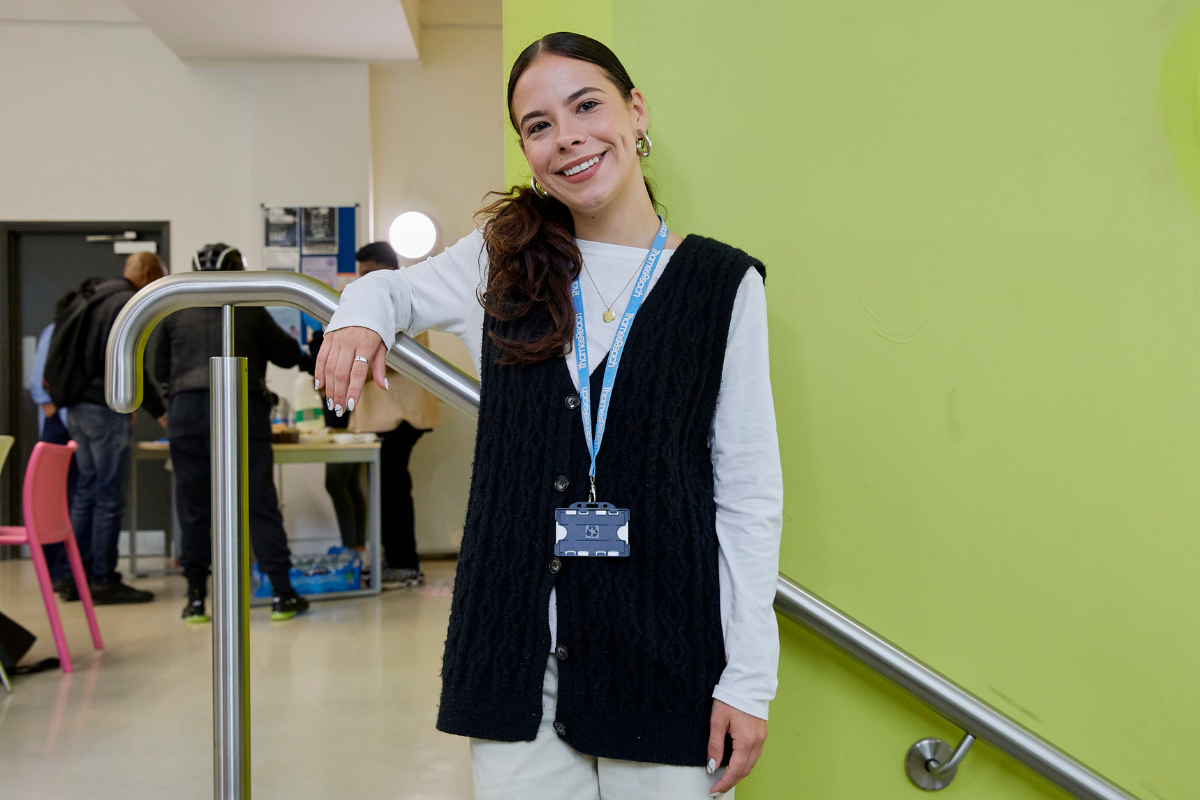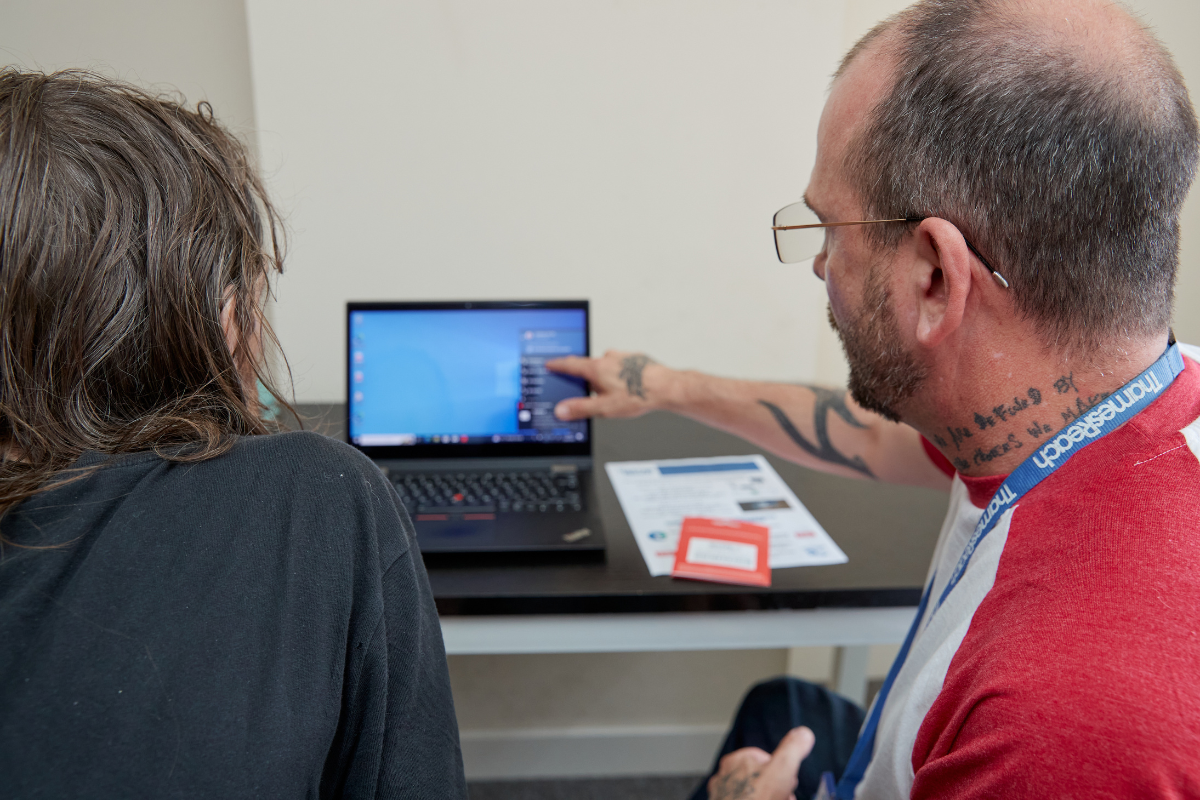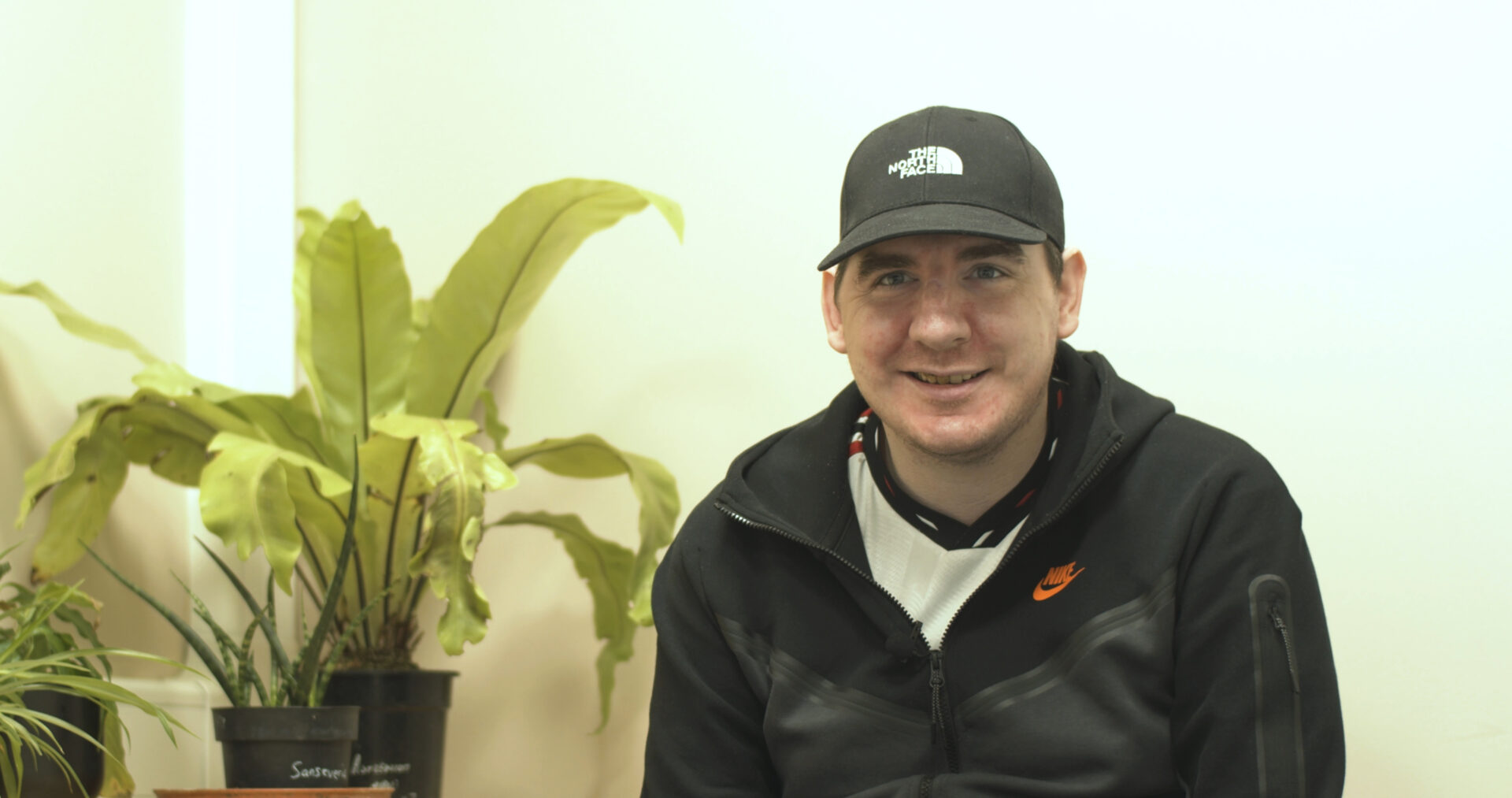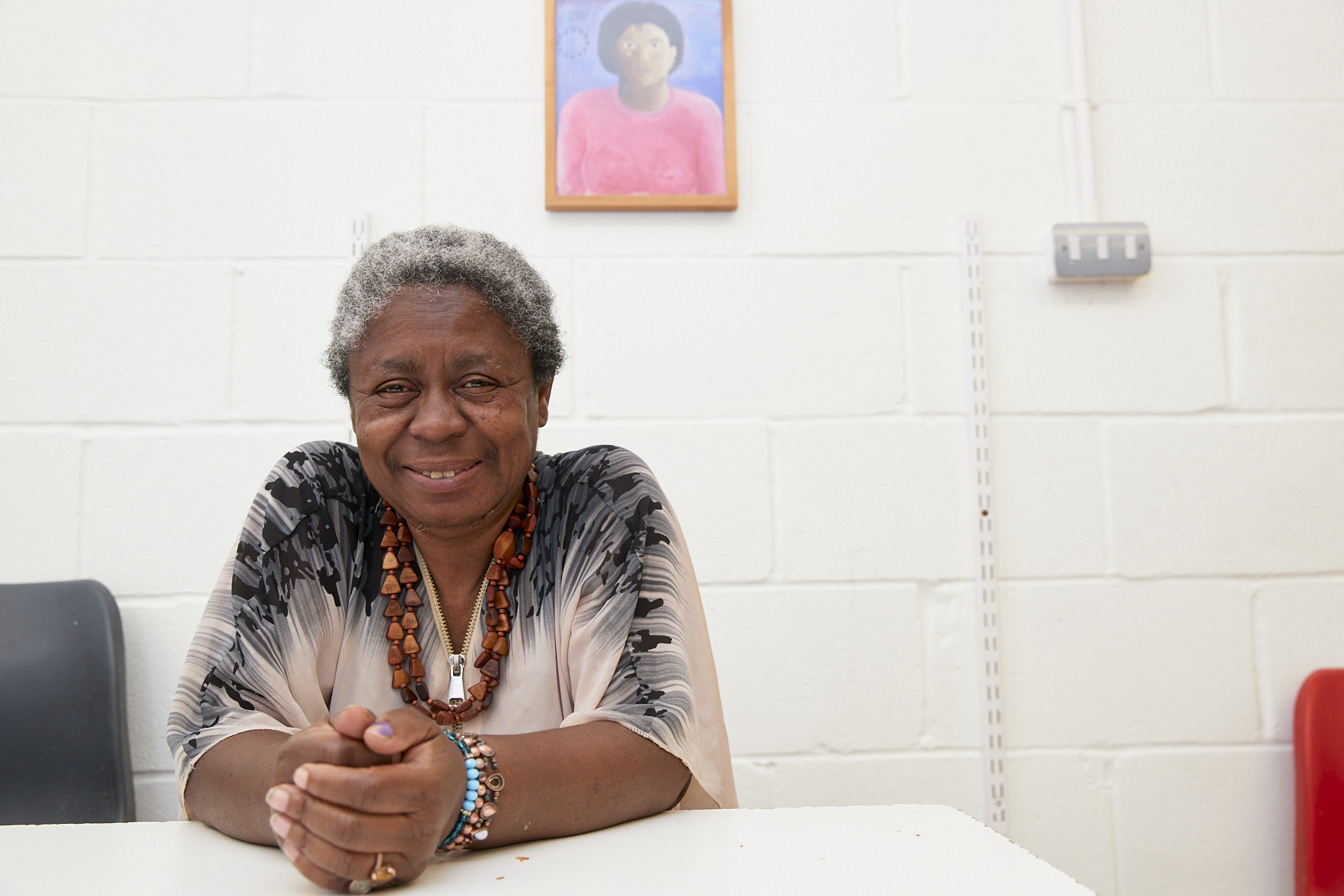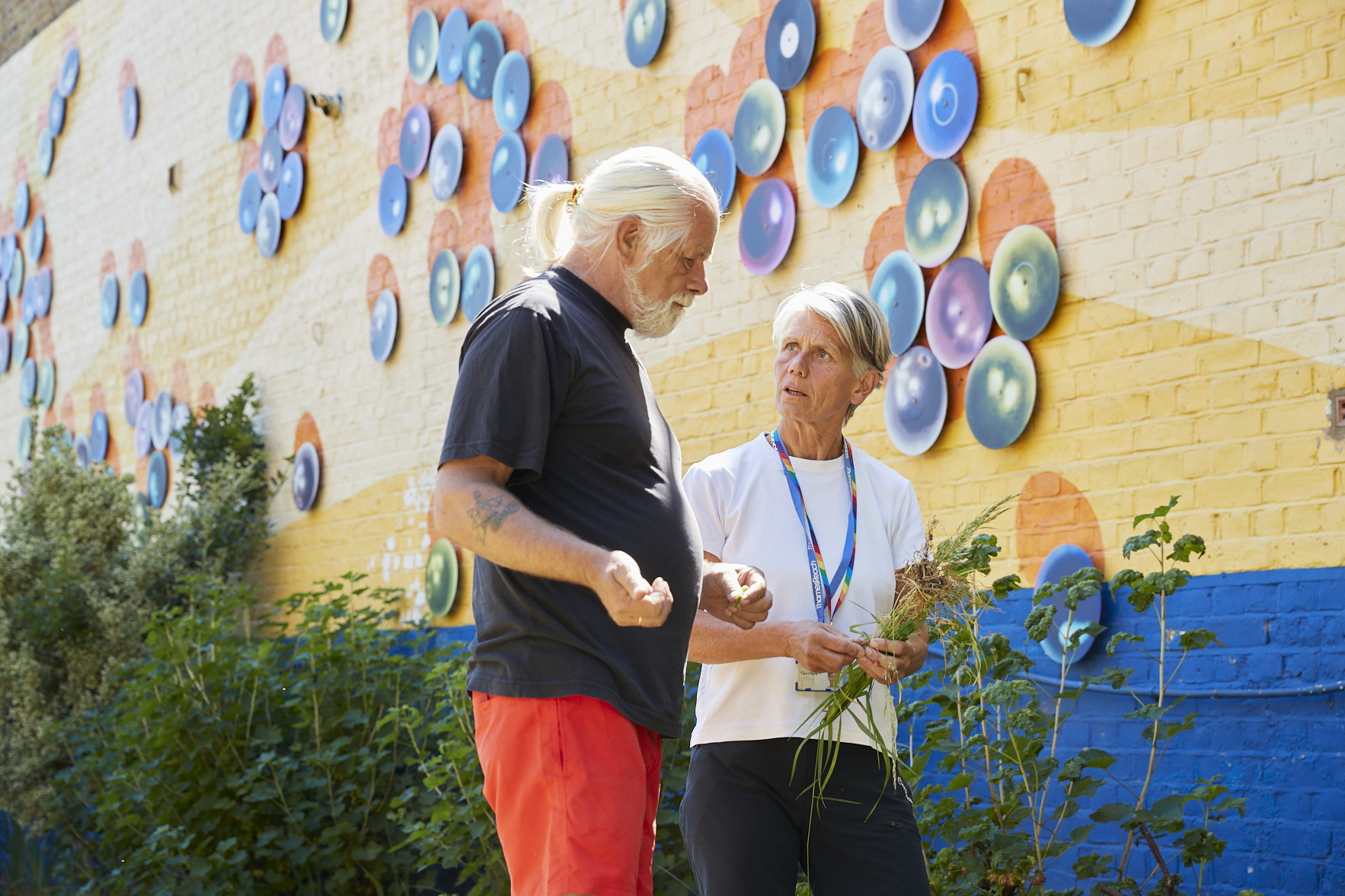Ginny’s transition to fulfilling work
Through our Southwark Works programme, Ginny found the support she needed to make a meaningful career transition.

Before joining Thames Reach’s Southwark Works project, Ginny was in a difficult position. Stuck in a physically draining cleaning job during the pandemic and struggling financially, she knew she needed a change but wasn’t sure where to turn.
“I was quite depressed and felt trapped in a job that was exhausting and poorly paid,” she recalls. Her turning point came when she discovered Thames Reach’s Southwark Works through a simple online search. Despite her initial scepticism, she decided to reach out, hoping for some support to move away from cleaning and into a role that she would find more fulfilling.
Thames Reach’s Southwark Works is part of a wider service set up by the London Borough of Southwark. It aims to provide bespoke support for Southwark residents who are homeless or at risk of homelessness, and who are seeking sustainable employment.
When Ginny first met with the team at Thames Reach, her outlook was bleak. She was overwhelmed and uncertain about her future. “I was quite depressed, and I didn’t have a clear idea of what I wanted to do next… I just knew I needed to get out of the cleaning job,” she explains. Thames Reach assigned Shahid as her support worker, who provided the structured assistance she needed to navigate her career transition.
Turning her passion into a career
Ginny had been practicing yoga for 25 years and, despite training as a Yoga Therapist to help people with specific health issues, she was unsure how to turn her passion into a sustainable career. “I wanted a job where I could work directly with people and use all my yoga skills,” she says. Shahid and the team at Thames Reach helped her refine her CV, navigate job platforms like Indeed, and prepare for interviews.
The breakthrough came when Ginny was contacted via Indeed by a company that offered yoga and dance to children with Special Educational Needs (SEND) in schools and for residents in care homes. “I was initially unsure about teaching yoga to both these client groups, but it turned out to be incredibly rewarding,” Ginny says.
This opportunity allowed Ginny to take on a part-time temporary position with Camden Council’s Adult Learning Section, where she teaches yoga to clients over 60 in a care home, day care centre, and community centre within the borough. Working with individuals who have diverse needs, including those with dementia, has not only provided Ginny with a renewed sense of purpose but also helped her clients stay healthy, engaged, and connected, reducing feelings of isolation.
Ginny has also secured a part-time position with Bede House, a Southwark-based charity supporting adults with learning disabilities. The support she received from Thames Reach in expanding her job search, along with the interview preparation provided by her support worker, Shahid, played a crucial role in helping her make this transition. “I find it difficult to ask for help, and coming to Thames Reach was a big shift for me. It helped me overcome my resistance to seeking support and made me realise I could still learn and grow,” she reflects.
Today, Ginny is not only free from the draining job she had previously but also thriving in both roles that align with her passion and skills. “I’ve left cleaning behind and I’m excited about my future,” she says.
Ginny’s story is a good example of how targeted support and resources can enable individuals to make meaningful career changes and improve their overall well-being.
To learn more about Southwark Works and how it can help you or someone you know, visit Thames Reach Southwark Works.


